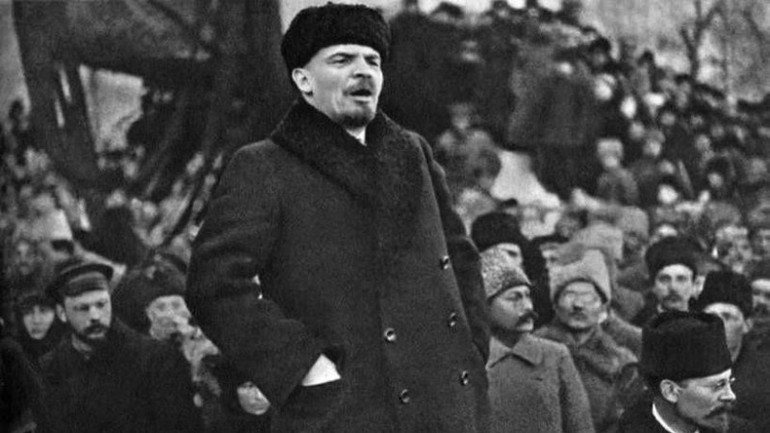
As a great thinker and outstanding political theorist, during his revolutionary career, Vladimir Ilyich Lenin made enormous contributions to the cause of liberating working people around the world, fighting against imperialism, and fighting for peace , independence, and freedom of nations.
Lenin was born on April 22, 1870, 155 years ago.
The great beacon of the working people
Lenin's real name was Vladimir Ilyich Ulianov, born on April 22, 1870, into a progressive intellectual family in the city of Simbirsk, Russia (now Ulianovsk). At a young age, through his family and relatives, Lenin absorbed progressive ideas and hated the Tsarist dictatorship.
At the age of 18, he studied the works of Karl Marx, Friedrich Engels, Georghi Valentinovitr Plekhanov and began participating in the revolution, propagating Marxist ideology.
In 1891, Lenin graduated from the University of Petersburg with a degree in Law and from 1893, became the leader of the Marxist group in Saint Petersburg. In 1894, Lenin joined the Russian Social Democratic Party. From here, he was one of the organizers and leaders of the Russian revolution.
Lenin's revolutionary practice was extremely rich. He was the first person to creatively apply the principles of Marxism to the reality of Russia; prepared politically , ideologically, and organizationally for the establishment of the Russian Social Democratic Workers' Party - the predecessor of the Russian Bolshevik Communist Party, a new type of proletarian party that led the working class and people of Russia to make the great October Revolution and carry out the cause of building socialism in the Soviet Union; and was the person who turned Marxism from theory into reality.
After the October Revolution (1917), Lenin led the Bolsheviks and the Russian working people to successfully fight against internal and external enemies, firmly defending the fruits of the revolution, and successfully defending the existence of the world's first workers' and peasants' state. Lenin was the first general architect of the directions and plans for building socialism in the Soviet Union, especially the New Economic Policy (NEP).
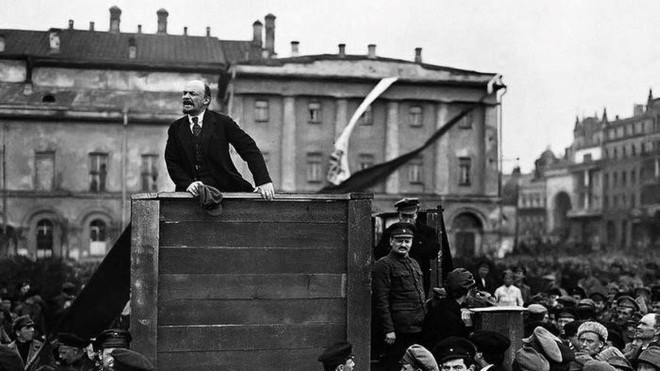
Lenin was also an active fighter for proletarian internationalism, founded the Communist International (the Third International) to lead the international communist and workers' movement, and gathered all revolutionary forces in the struggle against imperialism. He creatively applied the principles of Marxism to resolve the relationship between national and international factors in the revolutionary struggle of the proletariat. At the same time, he developed the national question of Marxism into the national and colonial question in the imperialist period; proposed principles of the proletariat's program on the national question; considered the national liberation movement as a part of the world proletarian revolution; criticized narrow-minded nationalism as well as chauvinism of great powers.
Marx's slogan "Workers of all countries unite" was developed by Lenin into "Workers of all countries and oppressed peoples unite!"
Under Lenin's banner, the Union of Soviet Socialist Republics and the world socialist system were formed; fascism was destroyed; oppressed peoples rose up to gain national independence, causing the colonial system of imperialism to disintegrate. Immediately after the Russian October Revolution, other revolutions took place in Austria, Hungary, Germany, Turkey and China. The Bavarian Soviet Republic, the Hungarian Soviet Republic, the Bremen Soviet Republic and the Slovak Soviet Republic were proclaimed. Soviet councils were established in Ireland as well as in Northern Italy…
Lenin's name has been associated with the greatest revolutionary changes in human society from the beginning of the 20th century until now. As President Ho Chi Minh wrote: "Lenin is the one who implemented and developed Marxism. He is the father of the proletarian revolution and the national liberation revolution. He is the teacher who created revolutionary fighters all over the world, not only with the most scientific revolutionary theory, but also with the highest revolutionary morality."
During his revolutionary career, Lenin was arrested, imprisoned, exiled abroad, and assassinated many times, but Lenin was always a shining example of steadfast revolutionary spirit, of determination to liberate the working class and working people, of noble revolutionary moral qualities, of a simple, pure lifestyle, close to the people. Lenin died on January 21, 1924, in Gorki village, Moscow. Lenin's body was placed in the mausoleum in Red Square.
Great contributions to humanity
Like Marx and Engels in the 19th century, VI Lenin appeared in the 20th century as the greatest revolutionary scholar and the greatest revolutionary in science. He was not only a faithful successor to the scientific and revolutionary doctrine of Karl Marx and Friedrich Engels, but also supplemented and comprehensively developed Marx's doctrine, raised it to a new height, transformed theory into socialist revolutionary practice; made Marxism truly become the dominant ideology in the international communist and workers' movement; helped the proletariat of the world and oppressed peoples unite in a united front to fight the common enemy - reactionary capitalism - and protect their legitimate human rights.
Throughout his life of working and dedicating himself to the revolutionary cause of the working class, laboring people and oppressed peoples all over the world, Lenin left behind a huge legacy. It is a precious legacy of ideology and theory; it is a beautiful and exemplary moral example of a true communist who spent his whole life fighting for the cause of national liberation, class liberation and human liberation from oppression and slavery.
It can be said that in his revolutionary career, Lenin contributed to humanity many great achievements in both theory and practice.
In theory, Lenin summarized the entire Marxism in a scientific, systematic, and fundamental way, and while defending Marxism against the distortions of populists, Machists, opportunists, revisionists, and counter-revolutionary arguments of many other bourgeois thinkers, Lenin added many contents of lasting truth to all three components of Marxism, including:
In philosophy, these are contents about the dialectical materialist worldview and the dialectical materialist method, about the theory of cognition, about the subjective factor in social revolution, about the role of the masses and individuals in history, about the relationship between social existence and social consciousness, about the state, the proletarian dictatorship state...
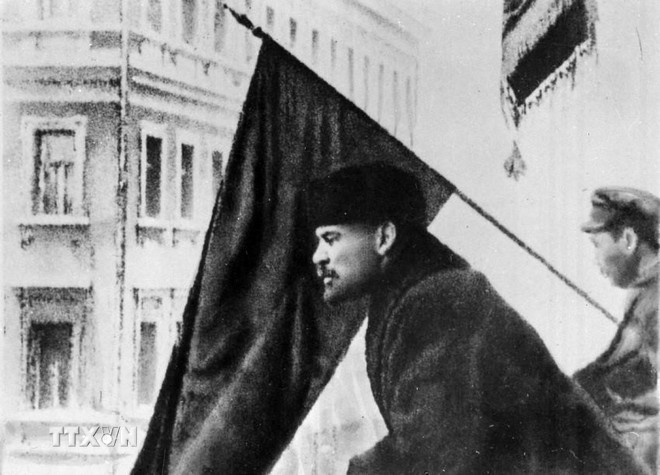
In political economics, Lenin was the first to propose a plan to advance to socialism in a country where the proletariat had won power but the economic and cultural premises of socialism were not yet complete. That was the New Economic Policy (NEP) with many economic components whose goal was to develop production to liberate workers on the basis of advanced technology, the mastery of the working people under the management of the proletarian dictatorship state.
Lenin was also the one who determined the fundamental socio-economic task of decisive significance during the transition period to socialism to be the socialization of production in practice with the fundamental tasks of industrialization, gradually bringing small-scale production to large-scale production through the path of cooperation, at the same time carrying out a cultural revolution, constantly raising the political awareness, educational level, science and technology of the people, resolutely fighting to eliminate old thoughts and habits, strongly promoting the revolutionary enthusiasm and creative spirit of the people...
In scientific socialism, Lenin enriched scientific socialism with the theory of the possibility of victory of the proletarian revolution first in a number of countries, even in one country; about the characteristics of capitalism in the imperialist stage, about the transitional period with transitional forms, "transitional steps," the basic contradictions of the transitional period; the characteristics and essence of the transitional period...
With Lenin's contributions, Marxism developed into Marxism-Leninism - an ideology that fully embodies the unity between the scientific, revolutionary and humanistic natures of those who founded, protected and developed it.
In practice, under the leadership of Lenin, the victory of the Russian October Socialist Revolution of 1917 made socialism from theory to reality. Unlike previous revolutions, the Russian October Socialist Revolution did not replace one form of exploitation with another, but this revolution established the dictatorship of the proletariat, abolished all forms of exploitation, thus creating a fundamental turning point in history, opening a new era for mankind - the era of transition from capitalism to socialism on a global scale.
As the leader of the working class, the working people and oppressed peoples all over the world, Lenin was not only concerned with the fate of Russia, but also deeply concerned with the fate of colonial peoples. By creatively applying the principles of Marxism and summarizing the practical experience of the Russian revolution, Lenin correctly and scientifically determined the relationship between the national question and the colonial question in the imperialist period, between the national factor and the international factor in the revolutionary struggle of the proletariat; at the same time, he outlined the principled issues of the proletariat in the struggle for national liberation.
Lenin's thoughts on the solidarity of the working class in all countries; oppressed peoples as a subject in the process of carrying out the revolution; the world's proletariat and oppressed peoples uniting... also have strategic orientation, promoting the struggles for independence on a global scale, promoting the movements of struggle for freedom and democracy in capitalist countries.
Vietnam is steadfast in Marxism-Leninism and Ho Chi Minh thought.
The burning desire to gain independence and freedom for the people and the country urged Nguyen Ai Quoc - President Ho Chi Minh to leave to find a way to save the country. He read "The First Draft on the National and Colonial Questions" by VI Lenin. When reading "The Preliminary Theses" by VI Lenin, he was moved: "Sitting alone in my room, I spoke loudly as if speaking before a large crowd: "My suffering and exiled compatriots! This is what we need, this is the path to our liberation!"
It can be clearly seen that the content of Lenin's "First Draft of Theses on the National and Colonial Questions" created a fundamental turning point in the development of Nguyen Ai Quoc-Ho Chi Minh's awareness, ideology and political stance in the process of finding a way to save the country. From here, the correct direction of the national liberation cause was determined, ending the long-term, profound crisis in the direction of the Vietnamese revolution.
President Ho Chi Minh considered Lenin's thoughts and lessons from the Russian October Revolution as a "magic handbook" but did not copy them. Instead, he absorbed their spirit and creatively applied them to the practical conditions of the Vietnamese revolution. He founded and trained the Communist Party of Vietnam to become the vanguard of the working class, with enough prestige and capacity to lead the Vietnamese people to overcome many difficulties and challenges to gain national independence, unify the Fatherland, and lead the whole country to socialism.
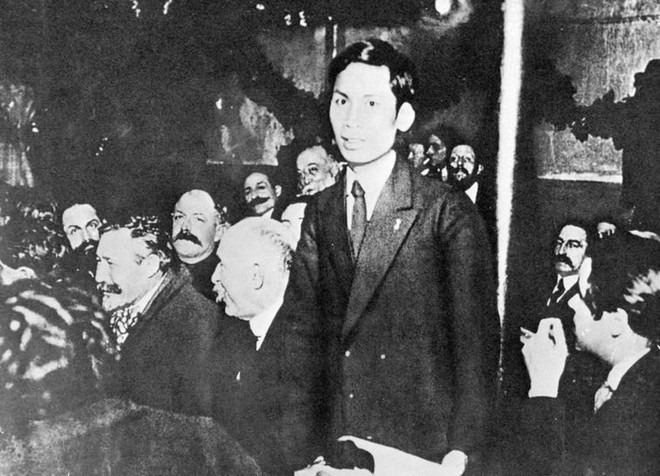
It can be affirmed that, from the first time President Ho Chi Minh read Lenin's "First Draft of Theses on the National and Colonial Questions", until now, Lenin's theory in particular, and Marxism-Leninism in general, have always accompanied and guided the Vietnamese people to achieve great victories in the people's national democratic revolution, the socialist revolution, in the cause of innovation, building and defending the Fatherland.
The great victories and achievements of great historical significance on the Vietnamese revolutionary path over the past 95 years have left our Party and people with extremely valuable lessons. One of the great lessons is the lesson of independence and autonomy in correctly assessing the situation, in creatively applying the theory and methodology of Marxism-Leninism to the specific circumstances of our country, and in learning from the experiences of other countries. That is a lesson originating from Lenin's dialectical and creative thinking. In any period of the revolution, if we know how to creatively apply Marxism-Leninism, we will gain victory; on the contrary, if we deviate from dialectical thinking, if we are dogmatic and stereotyped, we will certainly make mistakes and inevitably suffer certain losses.
In the context of the world and domestic situation with many opportunities, advantages and many difficulties and challenges, our Party and people always firmly follow the revolutionary path: national independence associated with socialism; taking Marxism-Leninism and Ho Chi Minh thought as the ideological foundation and compass for all actions.
Therefore, although time has passed and the world has undergone many great changes, Lenin's thoughts are still the torch illuminating the struggle for peace, national independence, democracy, people's livelihood, progress and social justice throughout the world.
Every year, activities commemorating Lenin's birth/death anniversary are an opportunity for generations of Russian people, as well as people around the world, to remember Lenin's great contributions, affirming that the legacies he left to humanity still have practical significance to this day./.
Source: https://baobackan.vn/gia-tri-vung-ben-trong-tu-tuong-cua-vladimir-ilyich-lenin-post70380.html








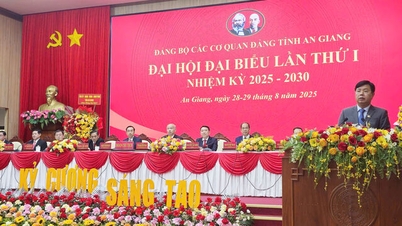





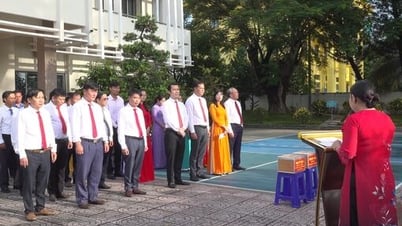





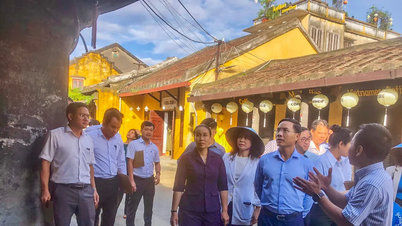



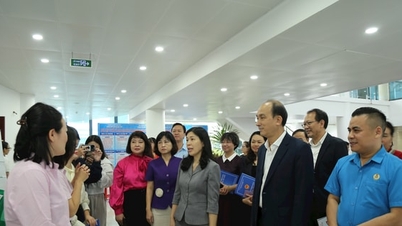

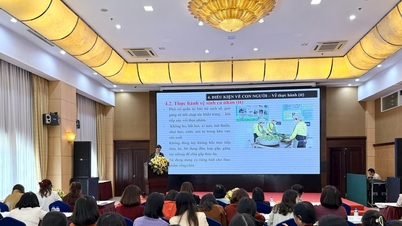






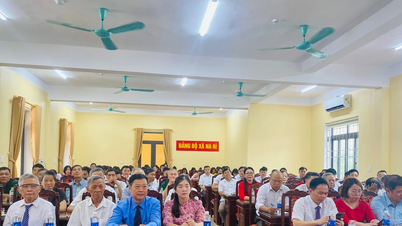
![[Updated news] Ceremony to announce the merger of provincial and communal administrative units in Thai Nguyen - Bac Kan](https://vphoto.vietnam.vn/thumb/402x226/vietnam/resource/IMAGE/2025/6/30/0de85cb56da843d897e30016b57b1412)
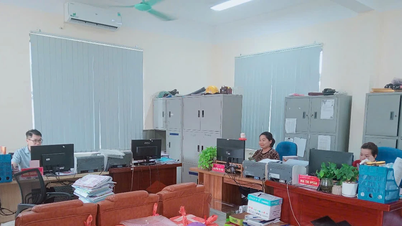
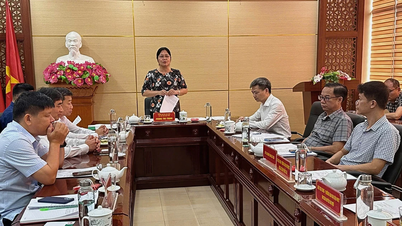
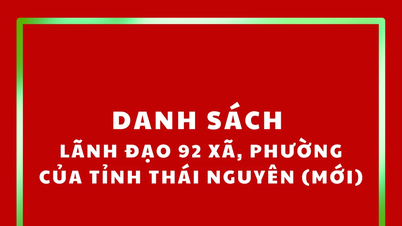









































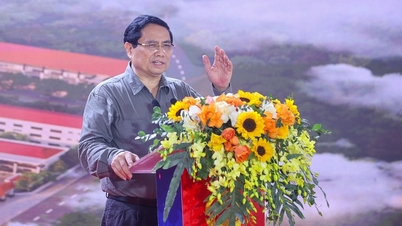



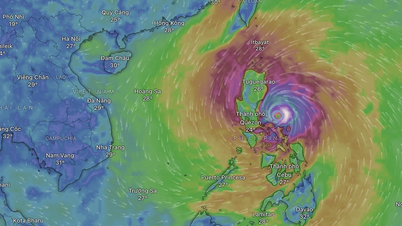




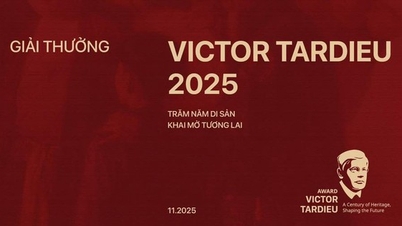














![Dong Nai OCOP transition: [Part 2] Opening new distribution channel](https://vphoto.vietnam.vn/thumb/402x226/vietnam/resource/IMAGE/2025/11/09/1762655780766_4613-anh-1_20240803100041-nongnghiep-154608.jpeg)













Comment (0)